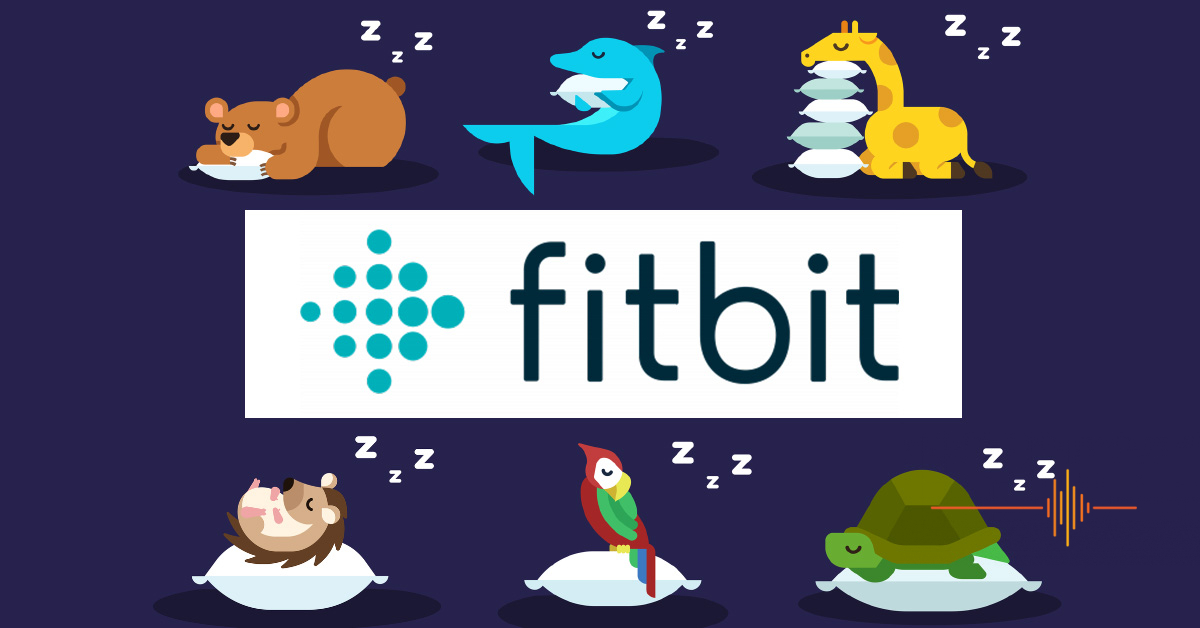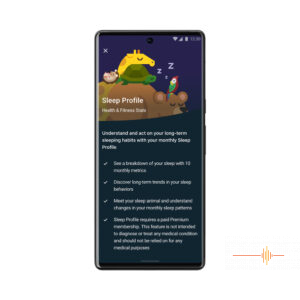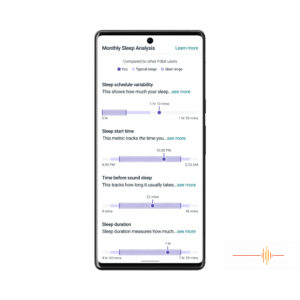Contrary to the expression of speech “sleep when you are dead“, we all need sleep. Some of us more than others. Not nap, not short rests, but sleep.
Do you really know what sleep does for you, other than (largely to) wake up refreshed and recharged? Your body clears out harmful toxins in the brain while you sleep. In studies of mices, it was found that the flow of cerebrospinal fluid in the brain increases dramatically, washing away harmful waste proteins that build up between brain cells during waking hours.
One of these waste products removed in this rinse cycle is beta amyloid, the substance that forms sticky plaques associated with the Alzheimer’s. Alzheimer’s and all other diseases associated with dementia have been linked to sleep disorders.
Fitbit introduced sleep features in 2009, with sleep tracking being incredibly popular making information previously only available through a sleep lab accessible to users via their wrist. To date, Fitbit have analysed a mind boggling 22 billion hours of sleep data, equivalent to the lifespan of over 5,000 tortoises. (Fun facts: a tortoise lives for up to 500 years and there are 60,000 giant tortoises in the world.)
Introducing the new Fitbit Premium feature, Sleep Profile, allows users to gather even more insight into their sleep by offering a new longitudinal analysis of your sleep patterns. It also makes your sleep data even easier to interpret with fun animal characters, so you can take steps to improve your sleep quality and, in turn, your overall health.
What does your Sleep Profile analyse?
Sleep guidance isn’t as simple as getting 7-8 hours rest (everyone is different!) and Fitbit have the data to show it through an analysis of 1.87 million sleep logs by a neurologist, sleep experts and research scientists. Supported by sleep science, Sleep Profile analyses your sleep across 10 key metrics each month, calculates trends and compares them to what’s typical for your age and gender, so you can discover where you have room to improve.
Our research team studied 1,000 different sleep features during its analysis before distilling it down to the key metrics we include in your profile. Ranging from new metrics, including sleep schedule variability, time before sound sleep and disrupted sleep, to previously tracked metrics such as sleep duration, restfulness and REM sleep, these data points portray a holistic month-long view of your sleep patterns and quality. You’ll also be provided with ideal ranges for each metric – and where you fall within each range – so you can consider where to focus your efforts for improvement. These metrics are shown on a monthly aggregate view for the first time (something that’s nearly impossible to replicate in a sleep lab).
What sleeper type are you?
These critical data points gathered from your sleep analysis inform your designated Sleep Animal, providing a fun way to understand your sleeping style. Our extensive research and testing found six animal archetypes, each chosen for their distinct trends that correlate each animal’s behaviour with common user sleeping behaviours and patterns.
The following graphics highlight top traits and habits of each sleeper type, and how yours can impact your day-to-day:
So if I am to extrapolate my own sleep profile, I start as a Dolphin, with the sleep type of a Bear, diving into the Parrot, then finishing ideally as a Tortoise but in reality more like a Giraffe. I wonder how the Fitbit Sleep Profile would classify this animal.
How does it work?
Wear your Fitbit device to sleep for at least 14 nights per calendar month to receive an assessment. The more you wear the device to sleep, the more precise the evaluation. Sleep can vary significantly from night to night, so it’s helpful to analyse your sleep data over a longer period from your own sleep environment to uncover more insights into your habits and how you can improve.
As a Premium member you will see your Sleep Profile, including your sleep animal and monthly sleep analysis, on the first day of every month. Animals can change from month to month, and data collected throughout the month will inform the next animal you receive the following month. There is no “ideal” animal – each one can be used to better understand your sleep patterns and how you can improve your sleep quality.
Based on your sleeper type’s behaviour, you will see where your sleep patterns compare to others like you – whether it’s setting a more consistent sleep schedule or creating a bedtime routine like trying the mindfulness content found within the Fitbit app to help you fall asleep faster. Getting quality sleep can play a critical role in your overall health and well-being, with poor sleep being correlated to increased potential health risks including diabetes, cardiovascular problems, obesity, poor cognitive functioning and more. Premium uplevels your Fitbit experience by helping you better understand your sleep patterns, your readiness to exercise and how your body responds to stressors, all with additional guidance and insights to help you achieve your health, fitness and wellness goals.
Sleep Profile is rolling out in the Fitbit app to Premium users with Sense, Versa 3, Versa 2, Charge 5, Luxe or Inspire 2 devices upon launch. Users will receive their first profile during the week of July 4, followed by monthly profiles delivered in the Fitbit app on the 1st of each month. (Note: Sleep Profiles aren’t intended for medical purposes and users should consult their health professionals for questions about their health.)











